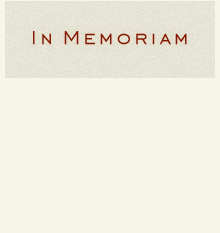Emdashes—Modern Times Between the Lines
The Basics:
About Emdashes | Email us
Ask the Librarians
Best of Emdashes: Hit Parade
A Web Comic: The Wavy Rule
Features & Columns:
Headline Shooter
On the Spot
Looked Into
Sempé Fi: Cover Art
Harvey Pekar, 1939-2010
Filed under: In Memoriam Tagged: American Splendor, cartoonists, Cleveland, comics, David Letterman, Green Lantern, Harvey Pekar, In Memoriam, Kryptonite, Pollux, Robert Crumb, Superman

Pollux writes:
“Some reviewers in Tucson and Kansas City, if they talk about American Splendor at [all,] are gonna say stuff like, ‘This is a comic book? Then why ain’t I laughin’?’ I know that, I’m ready for it.”
These are words spoken by Harvey Pekar in The New American Splendor Anthology (1991), or rather “Harvey Pekar,” the persona who inhabited volumes of comics. As figures and scenes from the Bible were rendered again and again by countless medieval and Renaissance artists, so Pekar was depicted by various comic illustrators, Robert Crumb not the least among them.
From the streets of Cleveland, Pekar gave us a documentary, in comics form, of life as a “flunky file clerk,” a working-class schlub, and self-deprecating visionary. If American Splendor was seen as narcissistic or overly concerned with everyday exertions, it’s because the fact that it was a record of one man’s mind and process was ignored. Pekar wanted to create comics this way. Why leave the reviewers in Tucson and Kansas City laughing when he could give them something new?
Alternative comics allowed for experimentation and collaboration. Comics could become something more than mass-produced, formulaic rags. American Splendor, and titles like it, was a comic to keep, shelve, and re-read. Pekar helped us all outgrow simplistic superhero comics.
Pekar was a curmudgeon, yes, but also a diamond in the rough. Pekar helped turn comics into a record of daily life, a collection of little moments that are otherwise forgotten but nonetheless are the stuff of real life.
And real life can be drab, boring, and stressful. Real life is filled with disappointment and solitude. But it can also be filled with laughter, drama, passion, and excitement. Pekar saw that the struggles between caped superheroes paled in comparison to the epic battles of daily life. Who needs Kryptonite when you have bills, loneliness, sickness, and David Letterman? And forget Green Lantern’s ring: what’s better than family or a hard-to-find jazz record?




Comments
It’s worth watching the clips of him on Letterman. I’m in Cleveland right now, and some friends posted them on Facebook today. Watch whatever you can find. It’s incredibly fascinating to watch these two midwestern malcontents go at it on nationwide 1980s TV. Watching Pekar, you have to admire his guts and his commitment to an oppositional viewpoint, apparently completely sincere, as if he could do no other. What’s funny is that this Dostoevskyian Underground Man, faced with the prospect of appearing on Late Night with David Letterman, reached for the Chomskyan agitprop persona. It didn’t seem to fit this particular misanthrope all that well, but it was the best option on offer — he really could do no other. And of course, his tirades about GE certainly have aged well, in our current media-governed society. Either way, what a mensch.
I really loved AMERICAN SPLENDOR and thought that the filmmakers did justice to him and his worldview